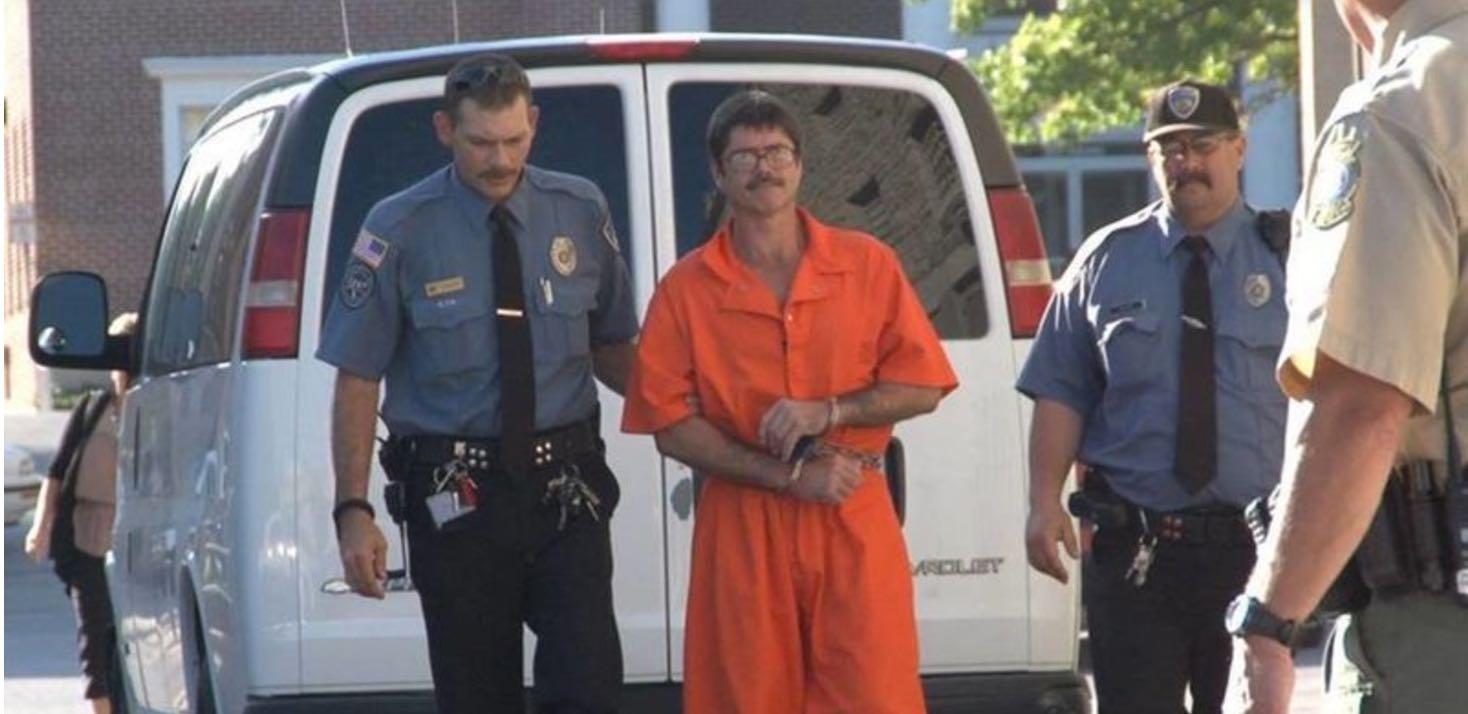Is it murder if there’s no homicide?
Jessie McKim steps off a transport vehicle for day two of his evidentiary hearing in 2013.
Jessie McKim has spent the last 20 years behind bars for a murder that never took place.
McKim of Kirksville, Missouri, is serving a life sentence without parole for murdering Wendy Wagnon back in 1997. (He was convicted in 1999.) But back in 2013, it was determined that Wagnon actually died from a meth overdose, even though prosecutors have argued that McKim strangled her. However, while the science says Wagnon was not murdered, a judge has denied McKim's request for relief because he has “not conclusively proved his innocence."
It’s a story that Marshall Project Senior Editor Andrew Cohen has been exploring. He says McKim’s case seems to violate a basic legal principle.
“There has to be some nefarious killing that takes place [for a murder conviction], and if you don’t have that, then you’re not going to be able to convince any judge, much less a jury, of convicting someone,” Cohen says.
“What happened, in this case, is there was this initial finding that strangulation may have been the cause of death,” he continues. “Everyone ran with it back in 1997, 1998 and 1999. A man was convicted and sentenced to life in prison without the possibility of parole, and it turns out that the victim in the case probably wasn’t strangled at all, and instead died of methamphetamine overdose after some sort of a binge over three days before the end of her life. If you take away the homicide component of a murder case, you really don’t have a murder case.”
Questions have swirled around this case for years, according to Jennifer Bukowsky, an attorney in Columbia, Missouri, who has been working on behalf of McKim after he reached out to her in 2012. When McKim contacted Bukowsky, he included a letter from to Dr. Edward Adelstein, a forensic pathologist from the county medical examiner’s office, which stated that it was “beyond reasonable doubt” that Wagnon’s cause of death was due to “methamphetamine toxicity” — not strangulation.
“Since I knew this medical examiner, it really stood out to me as something that I should just do a little bit more investigation into,” Bukowsky says. “Once I did, it was so immediately clear that a terrible mistake had been made and an injustice was ongoing here, with the imprisonment of this man for a murder that never even happened.”
Bukowsky first believed not just that she could quickly help McKim, but that it would only take about 10 to 20 hours of her time to secure his freedom.
That was five years ago.
According to Bukowsky, the state’s attorney has come up with “dubious” explanations to keep McKim behind bars. If Wagnon’s cause of death is indeed a methamphetamine overdose, the attorney general argues, it must be because McKim injected her with the drug.
“It wasn’t even a strong strangulation case, to be honest with you,” Cohen adds. “The medical science wasn’t conclusive that it was strangulation, either. You had the prosecutors using an informant who clearly was trying to make a deal with the state to get leniency in his case. So you had a weak case, to begin with, and then the whole medical basis for the case falls apart.”
Now, Cohen argues, in the face of conflicting evidence, the state of Missouri has chosen to adopt an alternative theory that was never introduced to a jury and is supported by no physical evidence to cover its error.
“It places McKim and his advocates and his attorneys in a difficult position,” says Cohen. “He has to essentially convince a judge that no other possible alternative is available, except for this methamphetamine overdose. It’s been a universal rejection of the arguments for Jessie McKim, so much so that now he’s asking the governor of the state for some sort of relief or some sort of mercy.”
Bukowsky hopes Missouri Gov. Eric Greitens grants McKim clemency before he dies in prison like his uncle James Peavler — his co-defendant — did back in 2010.
This story originally aired on The Takeaway.
Every day, reporters and producers at The World are hard at work bringing you human-centered news from across the globe. But we can’t do it without you. We need your support to ensure we can continue this work for another year.
Make a gift today, and you’ll help us unlock a matching gift of $67,000!
